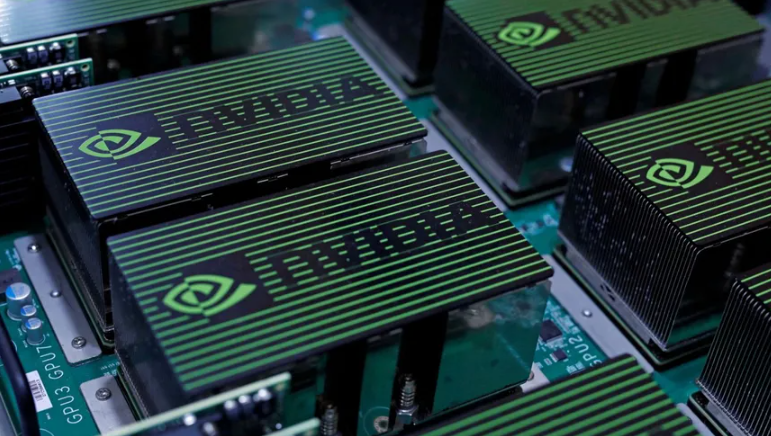
Chinese companies are abandoning the purchase of Nvidia’s latest chips, specially developed for the Chinese market with modest capabilities in line with U.S. government restrictions on sales of advanced chips to China. According to the Wall Street Journal, major Chinese cloud service companies such as Alibaba and Tencent, which have been testing Nvidia’s experimental chip models for the Chinese market since last November, have expressed dissatisfaction with the performance levels of the models. They have indicated that they will reduce targeted orders for Nvidia’s chips.
The continuous reduction in the capabilities of Nvidia’s chips has widened the performance gap between them and locally manufactured chips in China, making the latter more attractive to major companies due to their performance proximity and lower cost.
Alibaba and Tencent have already started testing local alternatives to Nvidia’s chips, such as those offered by Huawei, and are exploring the possibility of manufacturing their own chips internally. Sources have confirmed that companies like Baidu and TikTok developer ByteDance are adopting a similar approach for chips used in training and running artificial intelligence models.
The report indicates that Chinese companies are preparing future strategies that do not primarily rely on Nvidia’s chips, especially after the U.S. government’s statements last October about ongoing efforts to tighten restrictions on the export of advanced chips to the Chinese market.
While Chinese companies were testing Nvidia’s experimental H20 chip models since the end of last year, they realized that they needed a large quantity of chips to achieve the same performance as Nvidia’s chips, which are restricted from being sold to China. This reflected the strength of the local alternative provided by Huawei.
Huawei, considered a “strong competitor” by Nvidia CEO Jensen Huang in the chip market, succeeded in selling at least 5,000 units of the Ascend 910B AI model training chip to major Chinese companies in 2023, including 1,000 units to Baidu. Huawei’s AI model training chip is the local alternative closest in performance to Nvidia’s leading A100 chip.
The expansion of Huawei’s smart chip production is expected to increase in 2024, despite production issues due to growing U.S. restrictions. However, this has not prevented Chinese tech companies from relying on Huawei’s chips. China Telecom purchased chips worth $390 million from Huawei in October last year, while China Unicom paid $20 million in 2022 to obtain chips from the Chinese giant, in addition to several Chinese government agencies.
The Wall Street Journal report explains that Huawei aims to launch new AI chips by the second half of this year.
Leave a Reply